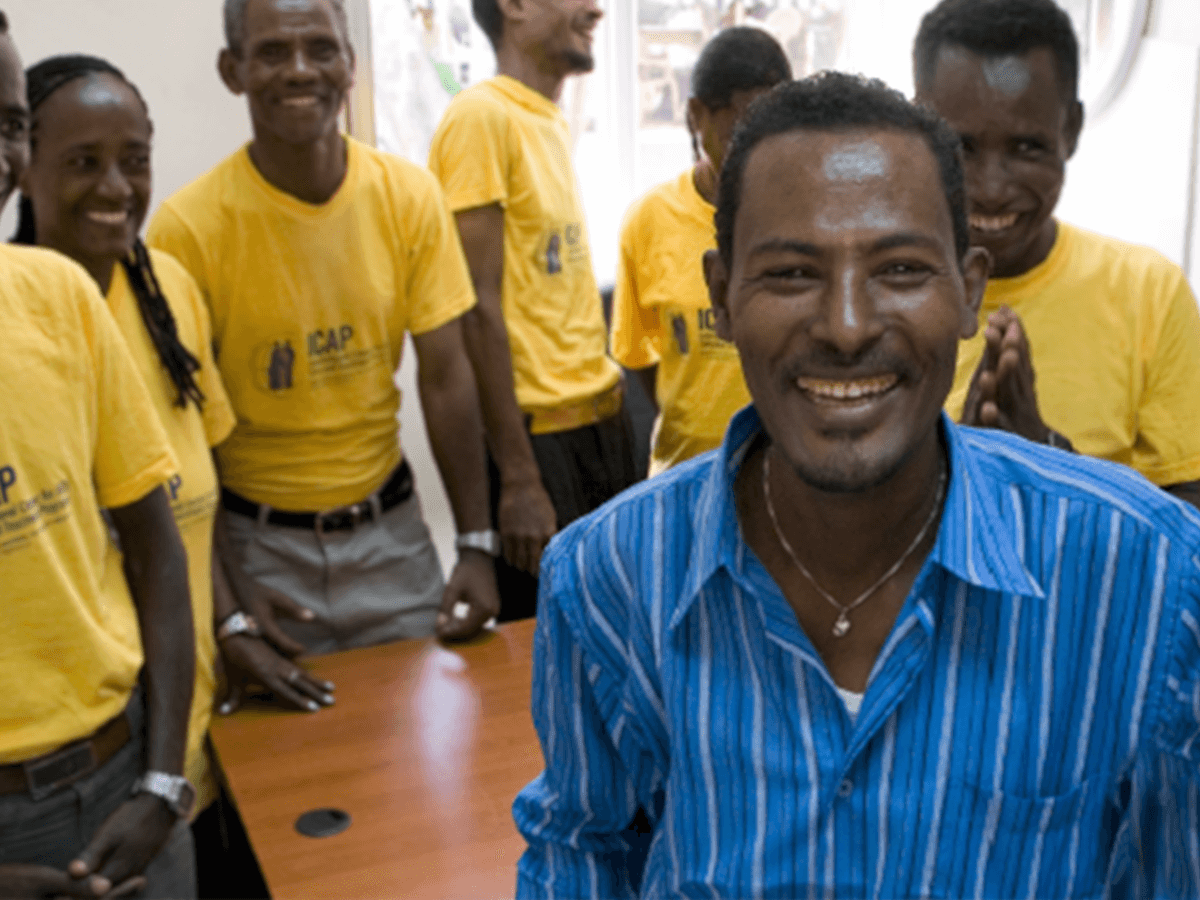Written by guest contributor, Kassahun Tadese
I was first diagnosed with HIV in 2005. I tested positive when I was 29 years old. At that time, I was attending evening classes to accomplish my dreams. During the daytime, I used to work for my living. I started falling sick and become bedridden. My appetite for food significantly deteriorated. I lost weight dramatically. I started experiencing severe flu-like symptoms. I went to several health facilities seeking to restore my health. However, none of them could give me lasting solution. Eventually, I decided to get an HIV test.
When I was informed of my positive test, desperateness filled me and everything around turned gloomy and horrifying. I thought my dream was aborted and short-lived. I assumed I would die soon and became no longer interested in life. Overall, I was scared, sad, and even angry at what happened to me. I felt as if everything was over and reached a point of no return.
My CD4 count* was only 13. Rumors were circulating that those with a CD4 count of less than 100 had a little hope to recover from the disease. For me, that was the most terrible information to hear. I stigmatized myself and stayed at home, counting days down to my death.
Through a friend of mine, I was privileged to access antiretroviral treatment (ART) free of charge. In a few weeks after I initiated treatment, I started going better, slowly but surely. As time passed by and as I saw my conditions gradually improve, I regained my positive energy and developed a strong commitment to battle against the virus. As a first step, I resumed attending school.
A life-changing incident came to happen to me when ICAP introduced a peer-to-peer HIV education pilot program in Adama referral hospital in 2005. ICAP had already implemented the peer-to-peer education pilot program in Dil Chora, Adama, Jimma and Asela hospitals for two years. Sister Genet Geletu, then the ART focal person at Adama referral hospital, recruited me to actively engage in the HIV peer-to-peer education program.
After seeing my active involvement in the peer group, the ICAP team privileged me to coordinate the peer-to-peer program at Adama hospital, which I consider as another breakthrough to transforming myself to a higher level of commitment. ICAP provided us with an intensive training course on peer-to-peer education and for two years I successfully coordinated the pilot implementation of the peer-to-peer HIV program. A total of 12 HIV clients were in the program, through which we provided HIV counseling, linkage to care, and lost-to-follow-up services in the hospital. Our peer group served as a bridge between health care providers and HIV clients.
At the baseline of the program, a total of 800 people living with HIV were receiving HIV services in Adama hospital. After two years (in 2007), the program grew to 7,000 clients. This growth in participants shows the spread of the HIV epidemic in Ethiopia. In 2010, the peer-to-peer HIV program shifted to HIV case managers program using the Greater Involvement of People Living with HIV principle, or GIPA. With the introduction of the GIPA principle, we were empowered to deliver a range of HIV services to the ever-increasing number of HIV clients enrolled into our ART program. While serving as case manager in Adama Hospital at this time, I got my BA degree in management from Adama University in 2010.
In 2011, people living with HIV started to organize themselves under an umbrella association to strengthen their role in the fierce struggle against the epidemic that was spreading as forest fire throughout the country. Using such an enabling environment, I founded a people living with HIV association named the Ethiopia Life Saving Association, with 120 people living with HIV as founding members. We started to receive funding from ICAP in order to deliver expanded HIV services to people newly testing HIV positive and existing ART clients. The Association, closely working with ICAP, coordinated the case management program in 12 health facilities in the central Oromia region of Ethiopia for nearly eight years.
Coincidently, I completed my education earning a master’s degree in management and business administration. I also got diploma in leadership development for health. Going through such an exciting trajectory of life, finally I was appointed to serve under the capacity of Executive Director at the Network of Networks of HIV Positives in Ethiopia (NEP+). I led NEP+ for almost two years, managing the various projects implemented through the association in different parts of the country. In 2017, I joined ICAP and since then, I have been working at ICAP in Ethiopia as an adherence support advisor, providing technical and site level support to case managers in all ICAP supported facilities.
It has almost been 20 years since I was first diagnosed with HIV. For years, I have been running a stable and peaceful life with a tested but not detected viral load status. At present, I am married and the father of two adorable children whose ages are five and three.
My story tells that HIV cannot stop anyone living a long, happy, and fulfilling life. I have never allowed my status to stop me working towards achieving my goals in life. I am a living testament for this.
*A CD4 count is a test that measures the number of CD4 cells in your blood. CD4 cells, also known as T cells, are white blood cells that fight infection and play an important role in your immune system.

Guest author and ICAP staff member Kassahun Tadese, top left, is pictured here with his wife and two children.
About ICAP
A major global health organization that has been improving public health in countries around the world for nearly two decades, ICAP works to transform the health of populations through innovation, science, and global collaboration. Based at Columbia Mailman School of Public Health, ICAP has projects in more than 30 countries, working side-by-side with ministries of health and local governmental, non-governmental, academic, and community partners to confront some of the world’s greatest health challenges. Through evidence-informed programs, meaningful research, tailored technical assistance, effective training and education programs, and rigorous surveillance to measure and evaluate the impact of public health interventions, ICAP aims to realize a global vision of healthy people, empowered communities, and thriving societies.








